I came back from that hospital and my depression had worsened. The staff was horrible. I’m 15, so I was in the adolescent wing. I received no help while I was there. The staff said alot of rude and insensitive things to me. One nurse even said to me that I shouldn’t be u ...
About SummitRidge Hospital
Summit Ridge Hospital offers detox, inpatient treatment, partial hospitalization, and intensive outpatient programming services for adults and adolescents.
The medically supervised detox program at SummitRidge Hospital is an adult only program. The entire process is overseen by medical staff to ensure safety and as much comfort as possible.
The inpatient program at SummitRidge Hospital is for adolescents ages 11 – 17 years of age. This program includes a psychiatric assessment, family therapy, group therapy, recovery skills, academic support, recreational therapy, and parent and teen support. Working through the need to use alcohol or drugs is important at a young age. Often those who need inpatient have underlying unresolved emotional challenges or a dual diagnosis that needs to be treated. This program is designed to help participants gain clarity on their challenges, and find new tools to support them in their lives.
The partial hospitalization program at SummitRidge Hospital is for adults 18 years of age or older, who have been diagnosed with a psychiatric condition, or who have been diagnosed with dual diagnosis. An evaluation is provided prior to beginning treatment to identify the appropriate level of care. In addition to doctor’s visits, therapy is provided. Psychoeducational classes on various topics, including specialized skills such as learning how to gain confidence when facing issues, are required to help create a healthy foundation prior to graduating from the program. A separate adolescent track is provided for those aged 11 -17.
The intensive outpatient program at SummitRidge Hospital is for those who do not need a high level of structure, but who still need to have regular intervals of therapy and group connection.
Many intensive outpatient programs meet three times a week. This allows for greater autonomy and the opportunity to practice the skills learned in a workplace environment, school, or home life. A separate intensive outpatient track is provided for adolescents.
Latest Reviews
Rehab Score
Gallery
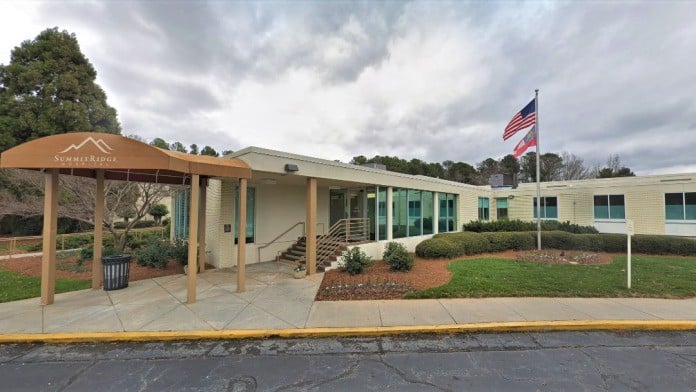
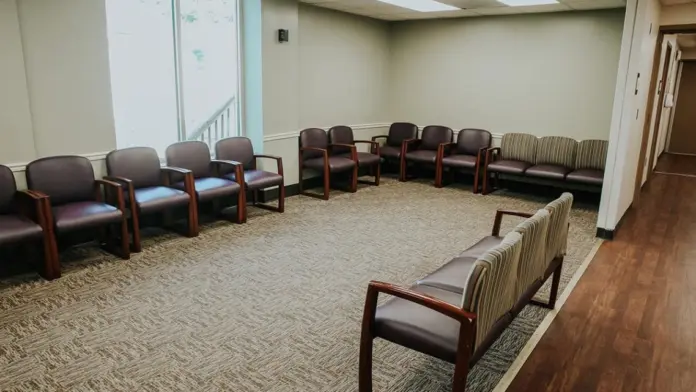
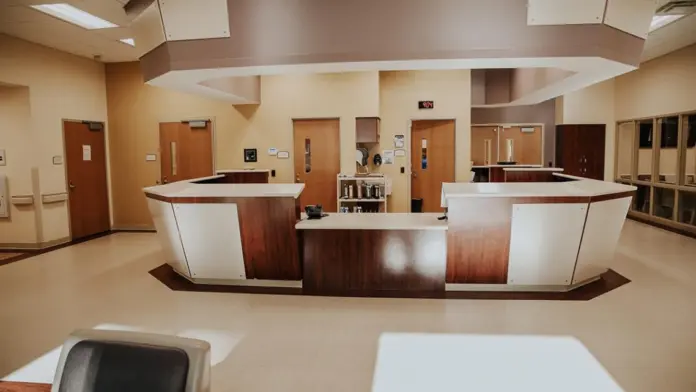

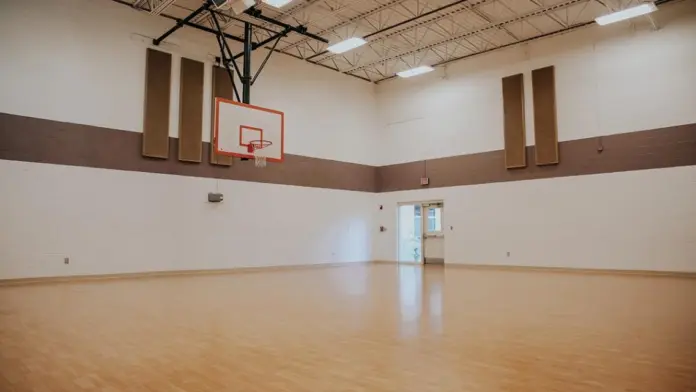
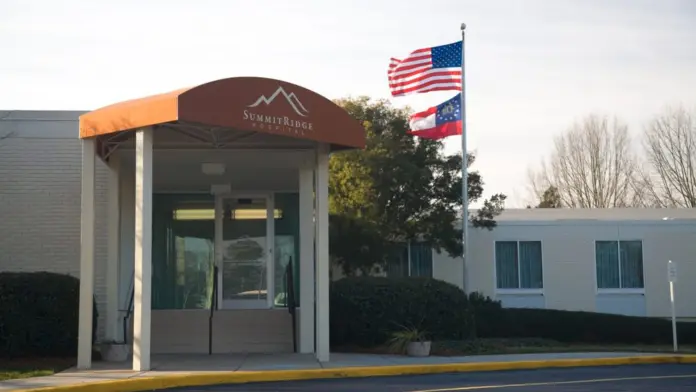
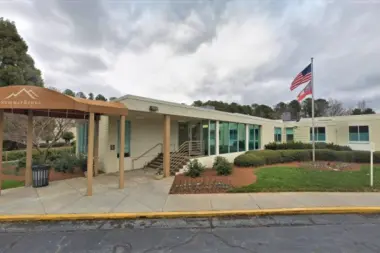
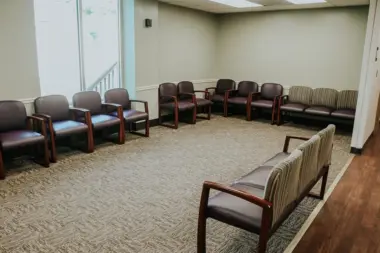
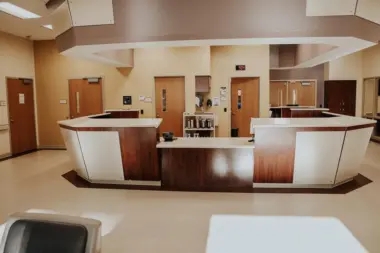
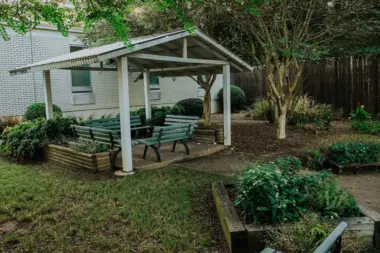
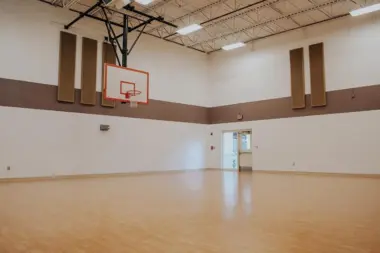
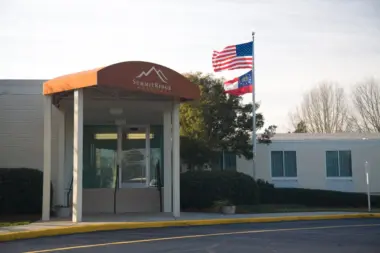
Accepted Insurance



Other Forms of Payment
Self-pay involves paying for treatment out of your own pocket. You can use savings or credit, get a personal loan, or receive help from family and friends to fund your treatment. If you don't have insurance or your insurance plan doesn't cover a specific program, self-pay can help ensure you still get the care you need.
Private insurance refers to any kind of healthcare coverage that isn't from the state or federal government. This includes individual and family plans offered by an employer or purchased from the Insurance Marketplace. Every plan will have different requirements and out of pocket costs so be sure to get the full details before you start treatment.
Military members, veterans, and eligible dependents have access to specific insurance programs that help them get the care they need. TRICARE and VA insurance can help you access low cost or no cost addiction and mental health treatment. Programs that accept military insurance often have targeted treatment focused on the unique challenges military members, veterans, and their families face.
Medicare is a federal program that provides health insurance for those 65 and older. It also serves people under 65 with chronic and disabling health challenges. To use Medicare for addiction treatment you need to find a program that accepts Medicare and is in network with your plan. Out of pocket costs and preauthorization requirements vary, so always check with your provider.
Addiction Treatments
Levels of Care
SummitRidge Hospital offers a variety of outpatient programs for individuals not requiring continuous care. Their Partial Hospitalization Programs (also called Day Treatment) and Intensive Outpatient Programs are offered during day and evening hours and allow patients to return home. Often, this programming is a step-down from inpatient care.
Residential treatment programs are those that offer housing and meals in addition to substance abuse treatment. Rehab facilities that offer residential treatment allow patients to focus solely on recovery, in an environment totally separate from their lives. Some rehab centers specialize in short-term residential treatment (a few days to a week or two), while others solely provide treatment on a long-term basis (several weeks to months). Some offer both, and tailor treatment to the patient's individual requirements.
This program is an intensive exploration of the impact addiction has on individuals and their lives. Recognizing and eventually accepting the problem is essential to effectively dealing with it. Patients receive guidance and support in learning to use the 12 Steps of Alcoholics Anonymous to make positive changes in their lives.
Sober living homes in Georgia offers an alternative to the abrupt change of moving from intensive treatment to an unstructured home environment. Men's and women's sober living homes replicate everyday life situations, but they do so in a sober environment while also reinforcing healthy habits. This reduces the chance of relapse. Individuals who could use extra support after rehab or don't have a stable home environment can benefit from this transitional option.
Designed for individuals who don't require round-the-clock care, a partial hospitalization program (PHP) is a form of outpatient care with a higher level of support. PHP treatment can be an alternative to inpatient hospitalization or a step-down option. With daily sessions lasting 6 to 8 hours, up to 5 days a week, a partial hospitalization program may offer medication management, relapse prevention techniques, and behavioral therapy interventions. PHP treatment can be fully or partially covered by insurance.
At certain points in the recovery process, it's important to have support available 24/7. 24-hour clinical care offers a safe environment in which to recover from drug or alcohol addiction in peace, knowing medical detox and other treatment will happen with professionals on hand.
Drug and alcohol addiction often takes a heavy toll on one’s body. Over time, a physical dependence can develop, meaning the body physiologically needs the substance to function. Detox is the process of removing drugs and/or alcohol from the body, a process that can be lethal if mismanaged. Medical detox is done by licensed medical professionals who monitor vital signs and keep you safe, healthy, and as comfortable as possible as you go through detox and withdrawal. For teens or adults needing detoxification from drugs or alcohol, SummitRidge offers inpatient medical detox for a safe, medically-supervised withdrawal.
Treatments
The goal of treatment for alcoholism is abstinence. Those with poor social support, poor motivation, or psychiatric disorders tend to relapse within a few years of treatment. For these people, success is measured by longer periods of abstinence, reduced use of alcohol, better health, and improved social functioning. Recovery and Maintenance are usually based on 12 step programs and AA meetings.
A quality drug rehab in Georgia can help you overcome addiction. This environment is designed to help you address the complex issues contributing to drug dependence. The goal of treatment is to give you the tools you need to make a full recovery.
A combined mental health and substance abuse rehab has the staff and resources available to handle individuals with both mental health and substance abuse issues. It can be challenging to determine where a specific symptom stems from (a mental health issue or an issue related to substance abuse), so mental health and substance abuse professionals are helpful in detangling symptoms and keeping treatment on track.
Opioid rehabs specialize in supporting those recovering from opioid addiction. They treat those suffering from addiction to illegal opioids like heroin, as well as prescription drugs like oxycodone. These centers typically combine both physical as well as mental and emotional support to help stop addiction. Physical support often includes medical detox and subsequent medical support (including medication), and mental support includes in-depth therapy to address the underlying causes of addiction.
Programs
Adult rehab programs include therapies tailored to each client's specific needs, goals, and recovery progress. They are tailored to the specific challenges adult clients may face, including family and work pressures and commitments. From inpatient and residential treatment to various levels of outpatient services, there are many options available. Some facilities also help adults work through co-occurring conditions, like anxiety, that can accompany addiction.
Young adulthood can be an exciting, yet difficult, time of transition. Individuals in their late teens to mid-20s face unique stressors related to school, jobs, families, and social circles, which can lead to a rise in substance use. Rehab centers with dedicated young adult programs will include activities and amenities that cater to this age group, with an emphasis on specialized counseling, peer socialization, and ongoing aftercare.
Clinical Services
Group therapy is any therapeutic work that happens in a group (not one-on-one). There are a number of different group therapy modalities, including support groups, experiential therapy, psycho-education, and more. Group therapy involves treatment as well as processing interaction between group members.
In individual therapy, a patient meets one-on-one with a trained psychologist or counselor. Therapy is a pivotal part of effective substance abuse treatment, as it often covers root causes of addiction, including challenges faced by the patient in their social, family, and work/school life.
Family members are important participants in the program and their input and involvement is strongly encouraged. Their supportive environment helps facilitate the patient’s return to family or to the care setting most appropriate to meet long-term needs.
Amenities
-
Residential Setting
-
Private Setting
-
Private Rooms
Staff & Accreditations
Staff
Mehmood Mehdi, M.D.
Medical Director
Accreditations

LegitScript has reviewed SummitRidge Hospital as part of their certification program, and has determined that it meets the LegitScript standards for legality, safety and transparency.
LegitScript verified in

The Joint Commission, formerly known as JCAHO, is a nonprofit organization that accredits rehab organizations and programs. Founded in 1951, the Joint Commision's mission is to improve the quality of patient care and demonstrating the quality of patient care.
Joint Commission Accreditation: Yes
Contact Information
250 Scenic Highway S.
Lawrenceville, GA 30046











